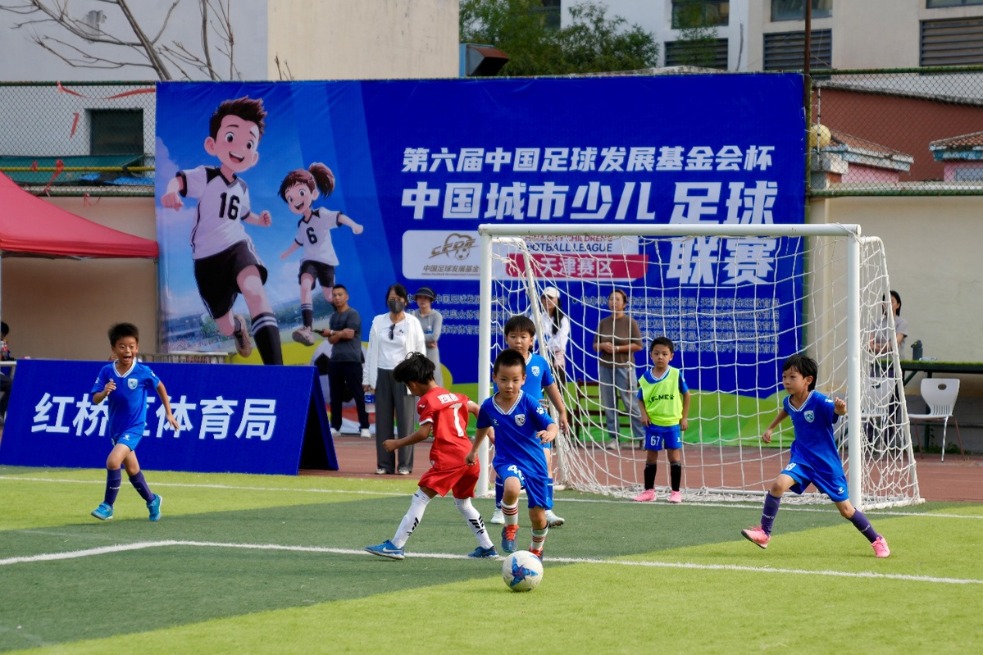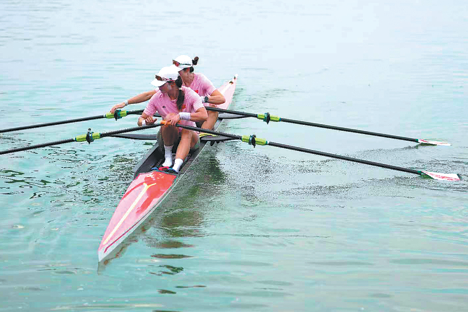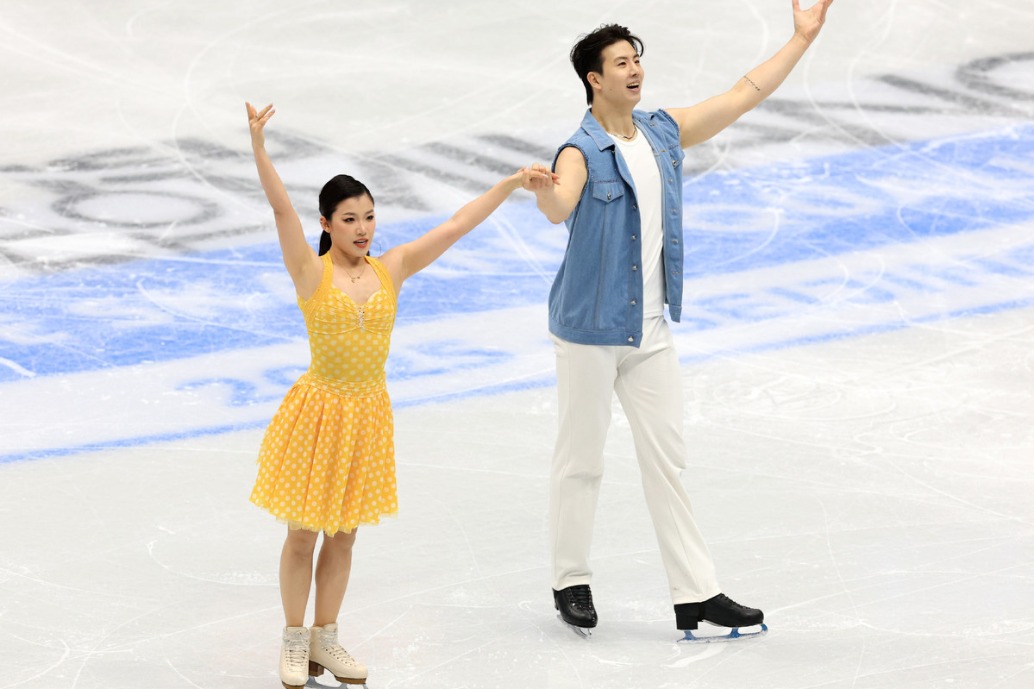A Harbin collector's lifelong passion capturing China's ice and snow legacy


HARBIN -- As the 9th Asian Winter Games draw near, the host city of Harbin, known for its stunning ice sculptures and deep-rooted winter sports culture, is brimming with anticipation. Among the treasures the capital city of Heilongjiang province holds, the remarkable personal collection of Liu Chang is especially impressive.
Housed in the Baroque Museum within the city's historic cultural district, Liu's collection captures the essence of winter sports in China, spanning decades of history and marking pivotal moments in the nation's sporting evolution.
A passion turns into a lifelong pursuit
Born in 1965 to Liu Zhongqian, a former speed skating coach of 1959 World Speed Skating Championships silver medalist Yang Jucheng, Liu Chang's fascination with winter sports began at the age of six. "Growing up in Harbin, winter sports were a part of my life," Liu Chang reflected.
At 17, Liu began working in the local sports system, and that's when he started his collection - initially focusing on stamps.
"When I was young, we didn't have many toys, so I collected stamps. It was a way to learn about the world, about history, and it allowed me to connect with my passion for sports. I started collecting Olympic-themed stamps, especially those featuring winter sports," Liu recalled, adding that even with his modest salary of just 30 yuan a month, he would empty his pocket money on rare stamps.
Liu's collection expanded rapidly in the 1980s, after the Harbin Stamp Collecting Association was founded. Nearly every weekend, he would attend stamp exhibitions held at the Workers' Cultural Palace.
To deepen his knowledge, Liu began reading books and newspapers, and traveling to antique markets across the country.
Over the course of more than four decades, Liu managed to gather a treasure trove of items, including rare memorabilia from every Winter Olympics, starting with the 1924 Winter Olympics in Chamonix and spanning all the way to the most recent 2022 Beijing Winter Games.
The collections vary widely, from Olympic medals to old event tickets, and even ice skating shoes that date back to the 1950s. "I've collected items from all over the country, from markets in Beijing, Shenyang, Changchun and Jinzhou. Each piece tells a story about the history of winter sports in our region," Liu said.
Bearing witness to China's sporting milestones
One of the most fascinating parts of Liu's collection is a series of ice skates made by the Heilongjiang Ice Skate Factory, which he painstakingly collected from various markets. These skates, produced in the 1950s, represent the rise of speed skating in China.
Many of the ice skates were made in Heilongjiang, which played a pivotal role in the development of ice sports in China. The factory, which started in 1951 as the Heilongjiang Hardware Factory, eventually became the Heilongjiang Ice Skate Factory. In 2015, after being dormant for over a decade, the factory was revived and continued to produce high-quality ice skating gear.
In 1990, Liu Chang and four fellow collectors traveled overnight by train to Beijing for the Asian Games, where they attended the 11th Asian Games Sport PHILEX'90 Beijing.
This was China's first major international sports event, and Liu seized the opportunity to purchase rare collectibles, spending over 1,000 yuan on commemorative items. Liu remembers the exhibition's vast scale - about the size of three or four basketball courts - and its significance as Asia's largest stamp event at the time.
One of the highlights of Liu's collection is a set of commemorative gold coins from the third Asian Winter Games in 1996, which Harbin hosted. This was the first time China had hosted the event, and Harbin's role as the host city marked a milestone in the development of winter sports in the country.
Liu, who had been deeply involved in supporting the athletes during the Games, remembers the excitement at the time. "It was an incredible experience," he noted, "The atmosphere was electric. The city was buzzing with excitement, and it felt like everyone was a part of the Games."
Liu's memories of the 1996 Games stand in stark contrast to the Harbin of today. Back then, athletes trained outdoors in freezing temperatures as the city had limited winter sports infrastructure.
However, the 1996 Asian Winter Games laid the foundation for the development of modern sports venues in Harbin. "The facilities were basic back then, but we made do. The Games were a turning point for winter sports in China. It was the beginning of a new era," Liu said.
A new Harbin is ready for Asian Winter Games
Nearly three decades later, Harbin is once again preparing to host the Asian Winter Games, while this time, the city boasts world-class venues and an international atmosphere.
The 2025 Games are expected to be the largest in history, with over 1,200 athletes from 34 countries and regions to participate. Harbin has transformed into a symbol of China's growing commitment to winter sports, with a modern airport connected to major global cities and an extensive high-speed rail network ensuring smooth travel for athletes and spectators alike.
Today, Harbin is also a microcosm of China's growing passion for ice and snow sports. On the Songhua River, new and exciting ice activities are continuously introduced, becoming part of everyday life. Meanwhile, skiing enthusiasts from all corners of the country flock to Yabuli during holidays to experience the thrill and excitement of skiing.
For Liu, the thrill of collecting continues, but today's landscape is different from decades ago. He no longer has to travel far and wide to find items for his collection. With official merchandise stores selling Binbin and Nini mascot toys, Liu can easily access memorabilia right in his hometown, Harbin.





























